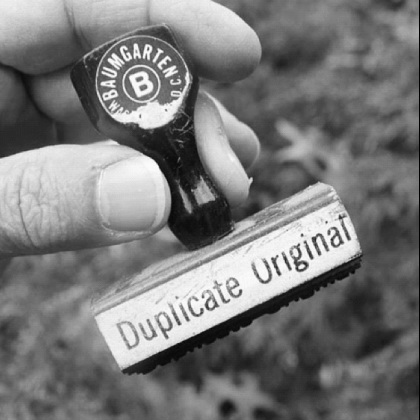 I have been involved in recruitment for over 10 years and the thing that I still find difficult to understand is candidates use of clichéd words or phrases when they are trying to write a CV that will help them to stand out from the crowd?!! There are many words / phrases that get shoe-horned into CV's because they worked for someone a generation ago, because that's what everyone writes or because, and lets be totally honest about this, people don't spend the time to think about a better, more unique, more personal way of saying it. You can imagine the recruiters worst nightmare; 200 CV's to sift through to select candidates for interview, trying to find the real person in each one, trying to read into the wording to find out who they are and what they can offer and everyone, one after the other, uses the following words and phrases...it becomes like a never ending CV ground hog day..... 1. Successful (successfully) 2. I can work well individually or in a team 3. I work well under pressure 4. I consistently hit my targets 5. Passion (passionate) 6. Perfectionist 7. I am looking to develop my career 8. Fast learner 9. Hard worker 10. etc etc There are ways to find a new a more individual way to describe you, what you have done and how well you have done it. · Try not repeating the same word or phrase at all in the CV, that automatically brings variety · Try using a Thesaurus and find a few new words that can make your CV m ore interesting, varied and memorable · Actually read your CV out loud before you send it anyone; does it sound boring and repetitive and run of the mill to you? If it does then change it..... How much better would the above sound with a little thought...how much more of a pleasant experience would it be for the recruiter if candidates weren't just reeling off lines that careers advisor's, parents or friends had told them would 'work.' If everyone thinks they will then we are back to the beginning because they won't. Branding you through your CV is becoming as sophisticated as product branding - people don't just buy washing powder these days because it gets clothes clean and smells nice..you get the idea... You are unique - allow your CV to show that uniqueness in your choice of language and phraseology....make your CV one that I (we) will remember rather than one that anyone could have written.... Paul Goring 1/9/2014
1 Comment
Sounds like something a wise man once said doesn't it? A wise man may well have said it but so did I and I continue to say it to any career coaching client who I work with; experienced professional, graduate or school-leaver and I want to explain why these few words are so key to you getting what you want from your career.
Let's be clear I am not advocating saying anything in your CV or interview performance that is untrue, far from it, what I am encouraging is that we all learn to amplify our message to employers by being comfortable in saying positive, upbeat and impressive things about ourselves. There is a particularly English / British tradition that modesty is a laudable quality, that to be loud and obvious is somehow crass and a little distasteful. I agree that clumsy and obvious self-promotion can be counter-productive and at worst annoying but that is not what I am advocating here; I am saying to everyone that is frustrated by being overlooked, a close second to the successful candidate or by the lack of progression in their career that you need to forget false or real modesty and begin to think about everything you say and write being part of an accumulated PR strategy that will help you to tell the world how brilliant you are! It is not about dwelling on any of the descriptions that have been used to keep people in their place...it's not 'showing off', it's not 'being big headed' and is certainly not 'boastful' it is simply being your own biggest fan and being able to lucidly and convincingly tell the world about the great things you have done, can do and want to do. People generally speaking love to meet authentic, confident, lucid and interesting people. Whether that is in the pub, on holiday, in work or in an interview. People remember people who are able to demonstrate their self-confidence and their skills with strong examples and body language, voice, eyes, smile and posture that all back up the content. It is liberating not to be always worried about what people think of how you are saying something when you come to terms with the fact that it is what you are saying that they will focus on. If you fail to flag up something that is important and relevant because you don't want to show off then who wins? If the CV next to yours on the desk or the person after you in the interview is able to show what they can do and do it in a proud and confident and persuasive way then who wins? Modesty is the enemy of opportunity - all candidates need for the sake of their own futures to be able to suspend their modesty and get the message across in no uncertain terms...... Paul Goring The title of this blog article is the best advice I can give any career seeking school leaver or graduate at the moment. Why? Because it works!
I know that the kind of jobs that you may be aspiring to and may have geared your education towards may not be thick on the ground at the moment and that getting a chance to be interviewed can often feel like constantly hitting the same brick wall but that does not mean that settling for second best and going off the radar of all employers is the way to deal with it. There are loads of cracking job and career opportunities out there but the candidates that get them are the ones who are prepared to do the leg work, build the relationships and get noticed... Go to everything... Look on-line, in printed media and through social media for every opportunity to get out into the world with a smile on your face, your best interview gear on and your CV in your pocket. The numbers game of on-line applications, posting your CV on one of the big sites or connecting with an agency is of course worth it because they might find you what you want. But I strongly encourage anyone, of any age, to get out there and find opportunity for themselves. I am not of the Norman Tebbit school of 80's thought when he encouraged people to get on their bike and find work, patronising as it was, instead I am very much of the school of thought that you live, in person, being brilliant and smart and excited and interested is going to have a far greater chance of being spotted. Why? Well despite many 'big' employers computerising their recruitment filters to the point of programming key words and qualifications into their selection programmes on-line; there are still vast numbers of employers, decision makers, recruiters and event organisers that understand about personal brand, making an impact, the personal touch and impressing someone with actions and words and not just qualifications and experience. In my experience SME's particularly take great heed of their 'gut feel' for an individual candidate. Because every single one of their staff matters to them, as there are fewer, then meeting people is a way they still find their stars of tomorrow. So prepared with a CV that does all of things I have spoken about at length in the past as 'the flier for the brand of you' (see previous blogs) and with a brave attitude to talking to anyone because as I have said in the past 'you never know who the person will be that gives you a break' you should get yourself along to everything that might lead somewhere; careers events, networking events, industry events, university and college events and national employment events at the big venues like the NEC. Prepare your 'pitch', know what your USP's are and be ready to really sell yourself when you get the ear of someone who wants to listen and is interested in what you have to offer. As a recruiter of 20+ years standing from my point of view you being there already puts you in credit with me and then if you have a positive attitude, something to say and some energy and interest then you are really beginning to get my interest... Speak to everyone... Be that person who is interested in what every employer does, find out more, understand when you hear an opportunity that you like that you need to act and project the professional image that you want to promote going forwards; set yourself dress, speech and manners standards and let those things as well as your skills, knowledge and competencies be your message to employers...you will be saying 'I mean business!' Networking is a very inexact science and actually the more you try and apply scientific methods to it a) the more mercenary you appear and b) the more you remove the random factor... but talking to people and asking questions and being open and honest about what you aspire to does work.. My two best job / career conversations? One was with a lovely Australian lady in a bar in Paris at Christmas time and the other was with a chap by the coffee machine during lunch at a careers event...you never know, who or when but you need to be there to benefit and to be on duty for your brand at all times to get the most from any good fortune. I think it was Gary Player (the very good South African golfer for you Tiger Woods generation people) who said 'the more I practice the luckier I get' that's kind of my point in a nutshell! Paul Goring 3/5/2014 0 Comments Mind the gap.... Recent intensive sessions with some of my career coaching clients have made me increasingly aware of just how out of sync candidates and recruiters can be when it comes to understanding what a CV is for, what it needs to do and just how fundamentally critical it's influence on the whole recruitment process can be. I have spoken before about the way that I work with candidates; getting them to think about themselves as a product / brand, about how to market that product / brand and then to understand that their CV is basically a marketing flier for that product / brand and an interview is in effect a product / brand pitch...so with all of that in mind and with my latest insight into the candidates perspective complimenting my 15+ years of wearing the recruiters hat; I want to explore the very real gap between what candidates offer recruiters in their CV (there must be a better word than that, it means 'the story or journey of m y life in Latin...really?!) and what recruiters really need the CV to say and do. So let's get Key Debate Number 1 out of the way immediately...the Personal Statement / Profile Statement or Introduction (I'm not married to any of those names for it really) must be in the first person, no questions, no arguments. Why? Well for me the first thing on your CV sets the tone just like the 'hand shake moment' when you are networking. So why use archaic language when you are talking about yourself and when you want to make a positive impression? When someone says "I" in their Personal Statement then the recruiter is engaged from the start, a relationships is being formed and there is somehow more validity and humanity in the words because you are owning them and not allocating them to this mysterious third person. One of my favourite personal brand words is Congruence and I am often taken aback by the absence of it; when for example I sit down with a graduate who is friendly, approachable, informal and warm and then read their CV commence with a third person description of themselves that would not be out of place in a Dickens Preface! Authentic and Appropriate (two more of my favourite personal brand words) dictate that one should be the "right sort of me" for each different circumstance and environment. Well in a CV one chance to impress type situations then surely the 'right sort of me' is the one that is natural, warm and which can create a connection with the reader? I for one am far more engaged when someone tells me in their CV...."I love the challenge of working to demanding deadlines and I get a real buzz from hitting personal and team goals" rather than "Charlotte has a passion for personal achievement and she thrives under pressure" no-brainer surely? So in short whatever the candidate calls the first bit on page one of their CV they need to understand that all a recruiter wants to gain from reading it is a sense of their personality, what is important to them, what they want in the future and whether they seem to fit the brand that the vacancy is with....they want a sense of what the candidate is all about and to give that most clearly first person and proper engaging vocabulary does it for me every time. I always try to impress upon my coaching clients after we have covered the 'intro' that they have now shaken the hand of the recruiter and said hello and that it is now time to now tell them what you can do and show them how well you can do it! Many CV's slip into the easier go to of Education & Qualifications, which I do concede in some roles is crucial but in the majority of the jobs people apply for it is the list of competencies / skills and knowledge that dictates success and usually dominates the job specification against which the recruiter is checking each CV. So if you are a candidate play to what the recruiter wants; they you to mention as many of the key competencies that they have on their list as possible and not just in a talking the talk way but very much in a walking the walk way. So it's all about listing the desired competencies, illustrating that you can do and/or have done and some tangible evidence to back it up; qualifications, training, results and promotions. Sell them you and what you can do in mutually understood language that of competencies and real life tangible outcomes of you doing those things. Finally it's the career history, education and training bit. From a recruiters point of view they are looking very much for succinct, perhaps bulleted content that tells them in concise short-hand what the candidate has done so far, who for, how successfully and for how long. CV's that go into the minutia of every role down to what the candidate did on Tuesday's and the name of every one of their managers just overwhelm and probably tired and under pressure recruiter. Again I am back to the gap between a candidate telling recruiter everything (or what you think they need to know, which is often everything) or making it easy for them to gather the information that they need to know. I am a great advocate for the schools employability workshop we run called 'You are the Recruiter' which is a part of our Employability offering to Secondary, Further and Higher Education; Why? well probably because I wrote it and it helps put bread on the table but mainly because I am convinced that being put in the shoes of a recruiter just for a few hours at the right age, where choosing between CV's under time pressure is the end game, is invaluable in helping to educate tomorrows candidates on what a recruiter looks for and needs. That knowledge is powerful. The CV game is not always about pure candidate talent in terms of qualifications, job ability and achievements sometimes (and increasingly often in my experience) candidate talent in terms of communicating with the recruiter in the right way, with the right structure, focus, vocabulary and personal brand clues is crucial. Obviously the candidate needs the right stuff to 'show off' but the fact is that many others increasingly have the same stuff; as qualification standards rise, work placements / intern-ship numbers grow and part-time work for students is more common. Back to brand of you, flier and pitch; candidates that don't 'get' this will increasingly find that the gap between them and the candidates that do growing. That's is why what I do is so rewarding; a CV rewrite coupled with coaching to help a clients to see themselves as a brand so often changes their 'luck' in the job market. Paul Goring 2014 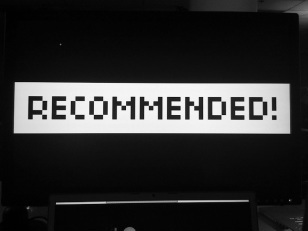 With social media taking an increasingly important role in finding the right career move and in being found by employers the influence of recommendations and endorsements is becoming hugely significant. I have always tried to be honest, immediate and generous with my comments about people that I have worked with, networked with, met informally and rated. Obviously it is easier if you have worked with someone for a period of time to write something very competency based and referenced into actual roles the person involved has performed. But in my experience quality and potential both shout loud when you know what to look for. I am sure that the old adage of people buying from people applies here and that trusted, experienced and well known people in your chosen field are gold dust as recommendations. Why? Well two main reasons, first they know quality when they see it because they have experience of what it looks like, sounds like and starts out being like and second and perhaps even more importantly they will not associate their brand with an individual who will disappoint, fail to achieve or not live up to expectations. So you are perhaps either starting out on your career or looking to gain an upward move or sector change; how do you reinforce what you have in terms of qualifications, attributes, competencies and skills in terms of underpinning recommendations / references from the right people? Themes I have talked about in past blogs about likeYou never know who the right person to network with is and Always being on duty for your brand are particularly relevant here. Always being at your best in networking, job or socially related situations gives those key people that you bump into along the way every reason to see the best in you and want to tell others about it. Being interesting and interested and memorable for the right reasons will all give you a fighting chance of leaving positive impressions however short the encounter. Linked In is perhaps a prime example of where this is most relevant in terms of social media. The programme prompts your connections to either endorse you for a skill or experience as well as giving them an opportunity to recommend you. Recruiters (internal and external) increasingly use Linked In as a source of reassurance on candidates through the medium of these two sources of information to influence how they view you. Not on Linked In? Well you need to sort that out pretty sharpish! The fact that you have a presence on the platform and most importantly keep the profile up to date and full of information says to potentially interested parties that you are serious about your career and that you know what it takes to get spotted. The absence of a profile when someone searches for you may even be the end of the search. With a growing number of connections comes increased chance of positive endorsements and recommendations and allows people like me to say good things about you. You also have the option of asking for recommendations.. I know that perhaps culturally this might feel a bit awkward. Asking someone to tell the world how brilliant you are feels wrong in some way..but if the rest of the world is doing it and gets results from it then you don't really have a choice in a competitive labour market do you? Obviously just as you might not connect with a complete stranger you should only ask those who you know will recall you, know enough to say good things and whose opinion carries weight. That's why when you network you should always make a note of people that you have chatted to and connected with - you never know when you can leverage against that relationship. People who are in positions of responsibility, power, authority however you chose to describe them; are often incredibly generous with their recommendations. That is why when you leave education, employment or even a training event you should focus on who you should ask if they would mind offering a recommendation for you. Building relationships towards the gift of a recommendation is a skill of course and you need to have performed at a level that you would want others to know about but this stuff is important as it offers a rich back drop of reassuring opinion about you from people that the people making decisions about you will read, listen to and allow to inform their decision. Marketing the brand of you is a multi layered task and the layer of recommendations is a key part in making sure that anyone you want to /need to impress can find opinion from others that under pins how fantastic you are! Copyright Paul Goring 2014  It is easy to ask 'how great was I' when you have achieved something - that is the kind of feedback that we all love and can cope with comfortably. The problem is and this will not be a surprise to you, the most important feedback that you ever hear is actually when you have failed to achieve something that you wanted to achieve. So you have created a brilliant CV because you have read my blogs about personal brand and your CV being your marketing flier and worked on it. Fantastic! The problem is that the interview you tried so hard and worked so long to get has resulted in them declining your application. They have given you some 'feedback' although it is pretty brief and useless because it reads 'there was simply another candidate who performed better than you did / was more suitable for the role / had more relevant experience' - so what next? Well thanks to the fear that seems to purvey many HR Departments that all feedback will lead to a tribunal that is likely to be the best you get when you ask for it the first time. It is no good to you and leaves you standing still. You need a bit more than a standard wording in a standard letter. So do not be afraid to ask for it. This does not mean creating a problem for the employer but just asking them very clearly what you need to work on to be successful next time. If you have the reflective learning and self-appraisal habit already then you will have made notes after the interview to describe how you felt you performed, what questions you answered well and which need work and how you think the recruiter rated your performance. So why not ask them specific questions like 'I felt that I came across as being very nervous and under confident, is that something that the interviewers report mentioned?' They might try to deny you detail at first but by being specific, constructive and polite you can make progress, especially if you make it clear to them that you felt you had been fairly treated and that you are asking for feedback to just help you to perform better next time! I have a good example from a few years back when I was a Recruitment Manager in industry; a young man who had received a decline letter with respect to his application to be a Sales Advisor rang up my team seeking further feedback. Sadly our feedback policy was also to say little and summarise the result as I have done above saying it was either experience or someone else out performing him. But he was not content with that, he felt he had performed well and argued that if he was never told how or where he fell short that he would repeat his errors next time. Quite rightly he persisted and found out my e-mail address and connected. I called him and he was so passionate about getting his performance right, so clearly disappointed that he had not got the job with us and so polite and professional despite his emotional state that I listened, talked to him and decided to meet him as I had not been involved in the initial recruitment process. Well the bottom-line is that I was very frank with him, he did not get the job because someone else with the proven track record, industry experience and industry qualifications did. In terms of his performance it was good and the only feedback remark from the report that he might be able to use was that he needed to slow down and be a bit more measured in his communication style. I recommended him for another position within the company, he was managing within 3 years and has gone on to have a very successful career. All because he asked and the fact that he asked and manner with which he asked told me a lot about him. Feedback is a used and abused; it was corrupted in the 80's and 90's when very earnest looking managers fresh from their training course on staff development and motivation used it during meetings where everyone felt awkward and no discernible progress occurred. But now it is crucial to help all of us in developing and understand how the world experiences us. Asking for it is brave especially in a recruitment scenario because it might feel like saying 'I know I have failed but can you tell me in a bit more detail why I failed' but really it is simply that you are saying 'I am honest with myself, I want to improve and by giving me honest and constructive feedback you can help me to do that.' Feedback and reflection are the fundamentals to you being able to evolve, learn and grow. To nail an interview you need to understand your past failures and do something about them. So don't let people off the hook if they don't want to help you - insist that they give you something that you can work on and take it on the chin! Paul Goring 1/8/2013 0 Comments Returning to Work -Returning to work after any sort of break be it parenthood, studying, illness, sabbatical or unemployment is not easy and sure we all have doubts about how we will make the transistion and whether we will be able to find and keep the kind of job that we want. These doubts are perfectly natural and understandable but ultimately they are a burden and they need to be understood, managed and controlled for you to move forwards. So where do you start? Well I think Step One must be to make sure that you are ready. Being ready is not just about wanting to get back into work or indeed needed to; being ready is about the preparation you need to go through to ensure that you are going to be confident and successful and this bit is about you and no-one else. Have you reviewed your CV or have you got one from three years ago that ‘will do’? Well for starters it won’t do and by ignoring your CV, which is the most crucial key to opening career doors, then you are already putting yourself at a disadvantage compared to other candidates that do understand its power and are working hard to use it. So why don’t you want to tackle the CV issue? Are you concerned about the gap, worried that the job you are looking for now does not sit well with the work you did in the past, anxious that your technology skills have not kept pace with the market or are you simply unsure what a CV should look like in 2013? All are easily answered and managed. Your CV is your flier advertising the brand of you and you can read more detail about this in earlier blogs I have written but let’s focus here on you being comfortable with the gap and not allowing it to be an unexplained black hole in your career development or something that you are somehow not able to explain or indeed celebrate. Developing more knowledge and skills, becoming a parent, overcoming illness or doing something different for a while are all part of who you are and being comfortable in including that time in your CV and explaining it to potential employers is key to you being ready to get out there and get a job that you want. So get started. Think about the positives; what you have learned about yourself and how you have grown and celebrate them. Step Two Once you are comfortable that you don’t need to excuse yourself about your recent work history and that it can be integrated with your past career history and your personal brand then you can start looking outwards. Are your skills sufficient for what you want to do? Is the job market healthy in the areas you want to work, are you being realistic? Setting yourself up for more disappointment by not researching carefully and being honest about what you can do and what you want to do can be a big mistake. All of the confidence that you have built up and the energy that you have to invest might be wasted on making many applications for roles that just don’t suit you or which might not exist. Knowing the market is key and that takes time on line and talking to experts to achieve. Step Three Getting out there! Now that you know that you have a researched and achievable job target and you have a CV that you are proud of you need to sign up to on-line job sites,–post your CV and let people find you as well as finding them through recruitment agencies, job sites and adverts for vacancies. Dressing the part and feeling the part are both key to you being successful. That personal brand and confidence that I talked about needs to be expressed physically as well as in your mind and employers respond to confident body language and candidates that speak with confidence and purpose and even if you don’t feel it sometimes you need to ‘fake it to make it.’ We can help with all of these stages if you need us but more important than that is your own self-belief and positivity because good things happen to candidates who know themselves and the market and get out there and make things happen. Returning to work can be a fresh opportunity to reinvent and re energise your career; so good luck with it and let us know if some one to one coaching or a place on our career boot camp days would help ! 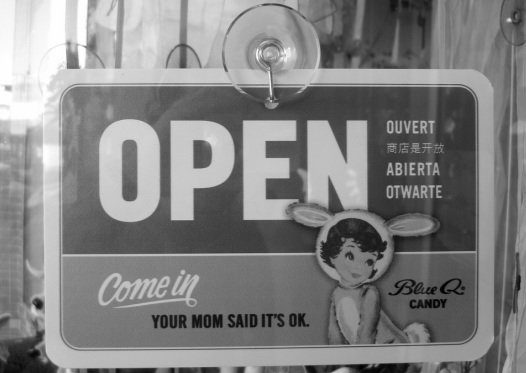 Working with one of my regular career coaching clients this week I had a revelation, not a blinding flash of light or anything dramatic, but a genuine realisation that one of the key things that is essential to being open to, attracting and considering all opportunities is a truly open mind. An open mind unburdened by parental influences, that is not restricted by a culturally imposed vision of what a career means or what it might involve and also a mind open and able to let people know that you are looking for a new challenge and able to ask them about what they do and then crucially, actually listening to what they say. The key conversation with my client went something like this; I suggested a possible occupation, one where I knew there were vacancies, that my client had the skills set and personality required and which fell within their commuting distance requirements. Their answers was 'Oh no I don't want to do that...(5 second delay)....what do they do exactly?' That in a nutshell is the closed mindedness that I am warning against. That could have been a job advert on line, a conversation or a recommendation that my client might have just wasted by not being open-minded and receptive to new ideas. We all have stereo-types knocking around in our minds; environment, parents, experience and preference (however ill-informed) all create them but to truly give yourself every chance of finding a role that will satisfy, challenge and develop you, you will need to get rid of the 'office work is all paperwork / sales is all cold-calling and account management means the same thing in every company' approach because it will limit your chances and also in turn display a lack of the both the imagination and desire to find the right thing and can never do you no favours. The conversation continued and we found out that actually my client had very little idea about very many different career paths and job titles infact they had a worryingly small amount of knowledge for someone that was not fresh out of school or college and might have had an excuse for not being very worldy wise about such things. My advice is; find out more, find out detail and challenge yourself not to present a closed mind to any opportunity. Why? Well in my opinion on many occasions your career will find you rather than vice versa, in which case you need to let it find you rather than not even listening when fortune comes calling. Many of the successful people that I know in challenging, responsible and indeed well paid roles did not set out to be a ............ whatever but instead have taken time to understand what it is that they offer and then when the right opportunity arises and they asked the right questions and then saw that a match might be possible and grasped the opportunity. Many skills and competencies do span across a whole range of occupations. Knowledge is clearly very important but training and additional qualifications (often in the role) can help you to overcome those barriers. Ask yourself which industries are struggling to recruit (and trust me despite the financial climate as a write this there are many industries with long vacancy lists that they cannot fill.) Research the businesses / sectors involved and really try to understand what it is they do. Ask people in the industry and seek out connections in your network who can advise, inform and illuminate the whole picture for you. There is nothing wrong with having a dream job and being geared towards it from an early age within education but times change and the role that you always wanted to do might not even be what you think it is. So in short; have an open-mind, know what a job involves before you commit or reject it and use those around you to inform you and you will find that many more opportunhities arise and that the world looks a different place once the blinkers are removed. We often forget the important details when we are getting ready for an interview; thinking too much about those dreaded 'killer questions' and imagining the pressure won't really do you any good to be honest. This simple little memory prompt will be invaluable just to make sure that you give yourself every opportunity of nailing it and being in the best state of mind you can be to be successful!
Dress The Part Simple but crucial - are they a 'suited and booted' type company or do they encourage smart casual or even dress down as part of their culture? Even then do you want to risk adopting the dress code that their employees are encouraged to use or do you want to start with a statement of standards? Our advice - go suited and as smart as you like unless they specifically tell you different. Let them see the best of you and that includes ironing things well and shining shoes and knotting your tie somewhere near your neck. You don't know the standards of the person who will be interviewing you so don't risk a decline on something as superficial as dress. Plan Your Route Again in a world of Google Maps, AA Route Planner and Sat Nav you'd think this was a no brainer; but you'd be surprised. Don't assume anything, look for the best route and best form of transport to get you there reliably on time. Time keeping is still a corner-stone of performance analysis in many businesses and so is personal organisation. Make the effort to know and be sure that you will be there when you need to be. It might not be the coolest thing in the world to swot up on routes and bus / train timetables and research traffic issues around the venue but since when has cool been relevant to getting a job! Prepare Some Questions When they ask, and they will, at the end of the interview 'do you have any questions for us' you must have something to say. Why? Well it's not always about what you ask, it's about the fact that you are interested enough in them and their job to have thought about it, that you can make a critical last impression by showing your research skills, asking intelligent questions and really engaging with them. It is flattering to a recruiter for you to be interested enough in the company that they work for to ask them about it. Simple. Breathing / Control Your Nerves The biggest cause of interview failure in my experience? Not skills, not ability to answer questions or indeed any one of a dozen other reasons....if fact it is your ability to execute your interview skills in a calm and professional way. It is your ability to remain focused, project an authentic you and gain their confidence. Nerves create nerves, so if you are calm then the interviewer will relax, listen more and be more receptive to you and what you offer. So, a few deep breaths perhaps in the rest room or on the walk to the interview room are highly recommended. Get your heart rate down and get some oxygen in your lungs. Develop some personal mind tricks that will suit you for calming down; I think of a waterfall or a sunny day, things that make me feel relaxed. You'll find yours; use it! Get There Early Fits with the route planner point above but also it means you can do the relaxing things and the caliming down thing in your own time. It means you can sit in reception and soak up the atmosphere, get used to the environment and start to feel at home. It also means you can interact with other candidates; if it is perhaps an assessment centre. You can show them that you are relaxed by getting talking so that you are warmed up for the interview and maybe show them that you are a strong candidate for the job which might put them off their game! Practice Your Lucid Stories I'll blog another time maybe about the full lucid stories theory that we use but in the meantime my basic advice is this. If you practice using some examples from your life / career / experience before the interview and you know what competencies and skills you want to illustrate using those examples then you can relax because essentially you already know what you are going to say in the interview, it is just a question of them asking the questions! This means you can focus on your 'performance' and do the body language, eyes and smile stuff that makes a huge difference because you already know your lines! Research The Job Please don't ignore this as being too obvious! Find out as much as you can about the job / company / sector as you can. Go on-line, ask people visit company sites and find out from others who work there. If you know about the job already then it gives you an advantage over others competing with you and it shows you are really interested and gives you a chance to answer that tricky industry or company related question that might get sneaked in! It is time very much invested... Know Who To Ask For Basics again but really important. You should confidently approach reception and ask for the person who invited you to interview and mention the job that you are being interviewed for and smile, make an impact with the receptionist. I always ask the reception team what they thought of my candidates and ask them if anyone stood out from the rest and why. They are used to meeting all kinds of people all day so they are sensitive to people with a bit of extra sparkle - let them see the sparkle it in you! Eat / Hydrate How often do people run out of gas on a long recruitment day? All of the time and it costs them dearly. Make sure that you have eaten the right amount of food, that your blood sugar levels are maintained and that you drink before and during the interview / assessment centre. If there are biscuits on offer take one, ensure you have a glass of water at interview and eat well at lunch if it's an all day event. The water will give you a prop as well as hydrating you; you can think while you drink. Also at lunch often assessment centre or interview evaluations continue so make sure you talk, shine and use the right cutlery! Reherse Your Answers Ask your nearest and dearest to ask you some basic questions and practice your answers. Often competency based interviews have questions that start with; Can you give me/us and example of....Can you tell me/us about a time when.....and....Describe a siutation that illustrates your skills / knowledge in...........if you get your Lucid Stories sorted out and practice applying them to questions about; team work, handling pressure, working to deadlines, hitting targets, working as a team, project management and managing people then you will be really well prepared for what they throw at you. As I said before this is all very simple stuff and the pics I have used are just clip arts finest but ignore this post at your peril because when it comes to interviews and assessment centres in the current climate with huge coimpetition for every job; the candidate who prepares best will give themselves the best chance of success and that is the bottom line. 6/21/2012 1 Comment Networking Yourself into a Career Sometimes it surprises me that candidates struggle to connect with potential employers when their immediate network of friends, family, team mates or social contacts could help them out in all sorts of ways. I thought I would talk about how you can give yourself the best chance of connecting with the right job opportunities based on my own experiences of both looking for jobs, helping others to and seeing how successful candidates use their connections. What should you have in place to maximise your chances? Ask People What They Do / Tell People what You Do – I was really surprised when a cricket team mate, who had recently graduated and was looking for a career opportunity, was unsure of what I did in my work. I then realised that we only ever talked about cricket in that social circle. We both I guess need to take responsibility for the not knowing; but once we had talked and he asked for help, we spent time getting his CV the way it needed to be and I was then able to get his CV in front of perhaps 15 key contacts which lead to three interviews within two weeks and two job offers within a month. All from one conversation between two people that knew each other already..... LinkedIn -–I am huge fan of LinkedIn for many reasons but as careerist or graduate it makes all sorts of sense to create and build a profile for yourself using this platform. You will be surprised by how many people you know who are already active on the site and also how many people they know or have access to through their connections. My 1,100 connections means I have 11,500 people on my network and access to 7.9m through my connections it takes time to build numbers and needs and weekly investment of time but it pays you back! CV - make sure you have a new, updated and well presented copy of your CV with you at all times or at least the ability to e-mail a copy of it to new contacts quickly. You never know when a conversation might end up with the line ‘I know someone that is looking for someone with your profile’; the ability to follow up on these golden opportunities is crucial make the most of your good fortune. Expand Your Network - traditional British reserve means we are not fantastic at putting ourselves out there and advertising our skills to the world but you will be amazed how responsive potentially important contacts can be. Contacting industry leaders, local specialists and potential mentors to help you and advise you on their area of expertise is a huge compliment, first a foremost; you are saying, in essence, I know you are a key player, I want to work in your industry, can you help. Also attending events relating to your potential career industry and asking questions, seeking out people that you think may be able to help and absorbing information about the industry will help you hugely. The key as far as I am concerned is always being on duty for your career. Any social setting or situation has potential and people that know you and like you will help you, so give them every chance to do so by letting them know that you need help. Managing your own career is very much the way it is now; the lower numbers of job opportunities, the changing relationship between employersand employees and the current economic downturn all add up to mean that you need to be your own marketing department for the brand of you and that concept once absorbed and understood should inform the way that you communicate with the network around you and maximise your chances of getting lucky. I think it was golfer Gary Player who said ‘it’s amazing, the harder I practice the luckier I seem to get.’ |
Paul GoringAGR MIPR BPS Lvl B+ Archives
November 2018
CategoriesAll Appraisals Career Career Advice Career Coaching Career Decisions Careers Advice Career Support Coaching Communication Confident Interviews CV / Marketing Flier Education Employability Employers Events Grad Careers Internships Interview Performance Interviews. Interview Advice Interview Tips Job Advice Lucid Stories Management Skills Networking One To One Meetings Personal Brand Personal Development Presentations Reflective Learning Returning To Work Staff Development Student Employability Understanding The World Of Work Your Own Career Manager |
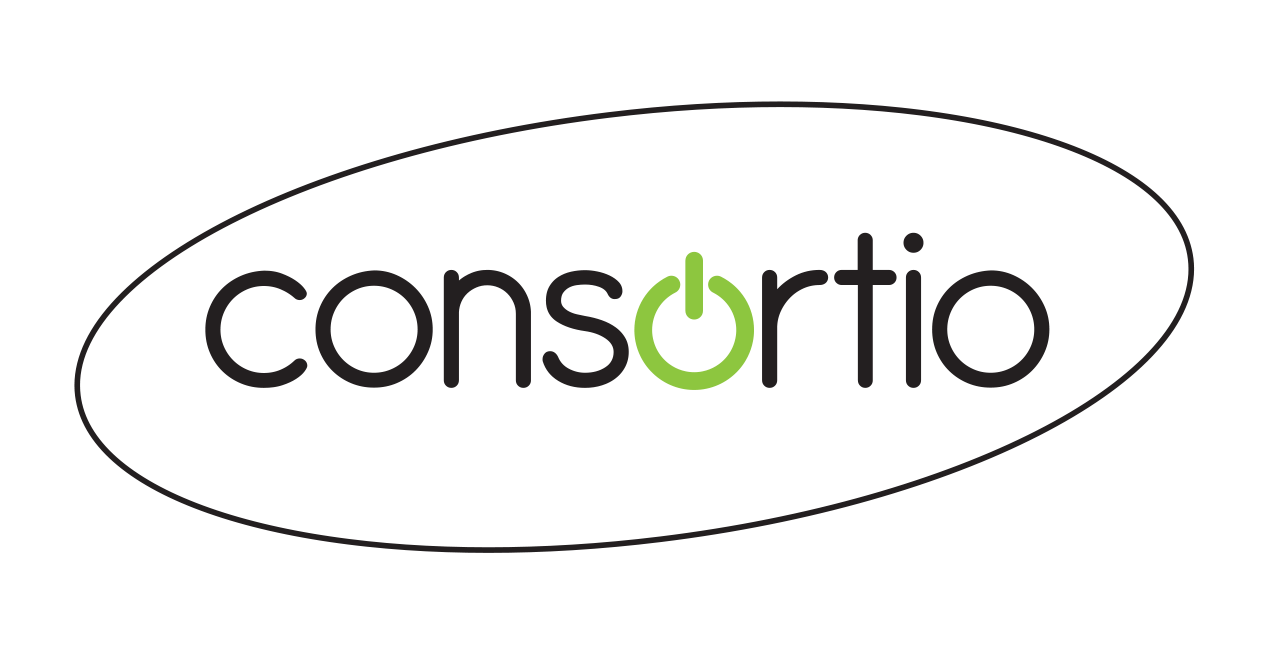


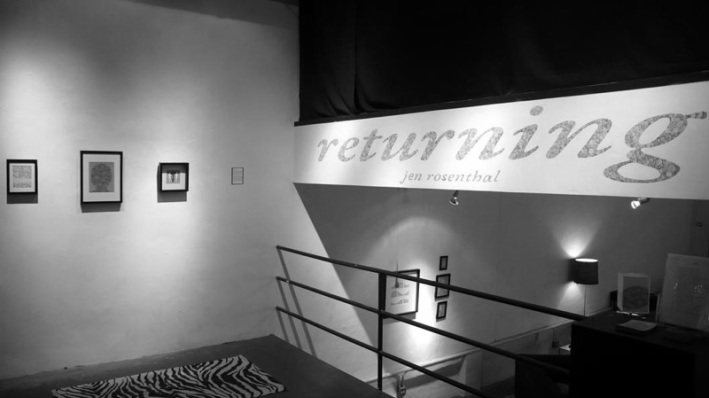
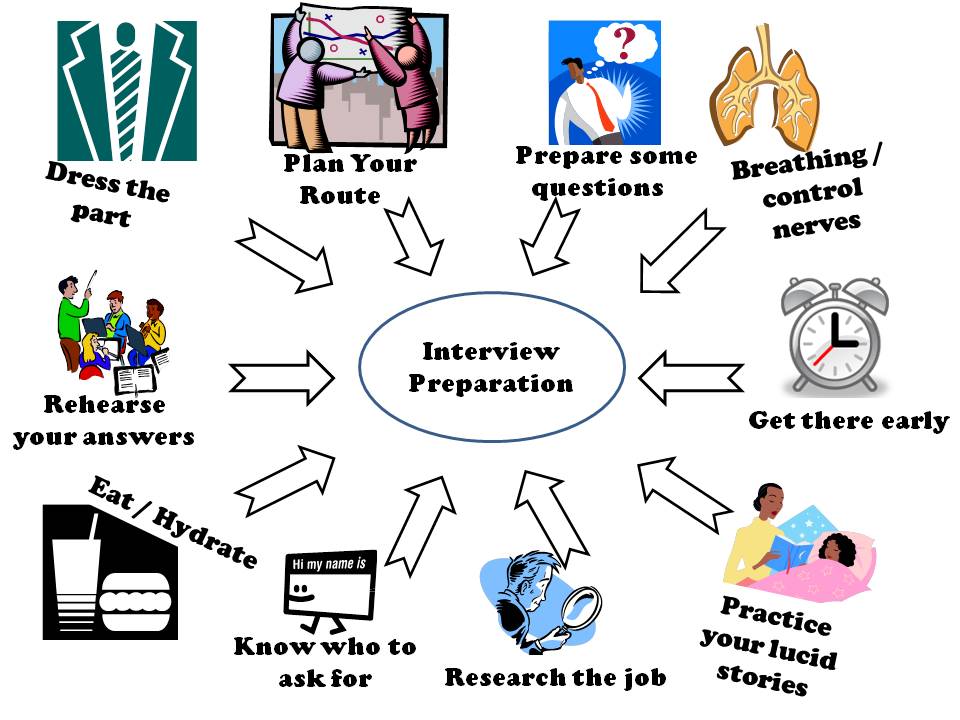

 RSS Feed
RSS Feed
